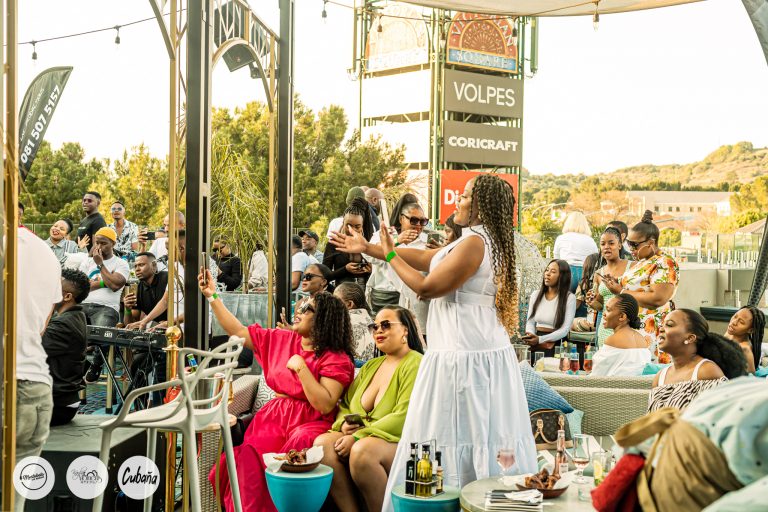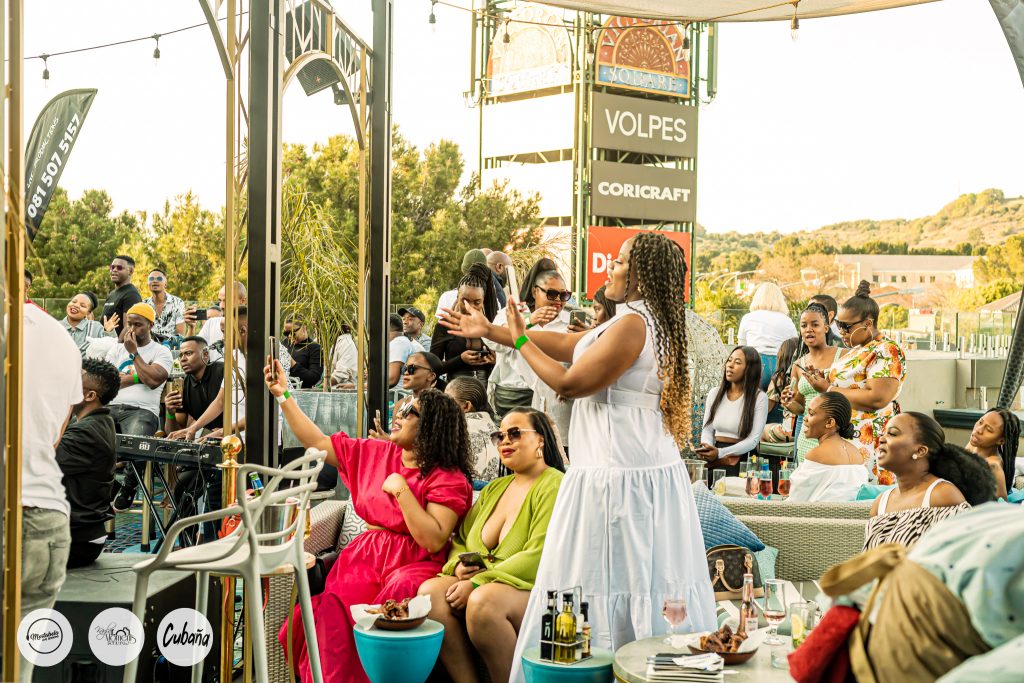Killing John Paka and Other Mostabela Moments

At this point, most people who don’t know about Mostabela have consciously decided to not know, writes Ace Moloi.
Nobody knows for sure what Sundays are for. Lovers? Church? Metro FM? It seems that whatever one gets up to on a Sunday is meant for Sundays. So, here on the waistline of South Africa, one lifestyle and live music concept is in the running to lay claim to the day. It’s called Mostabela Live Sessions and it’s a fresh addition to the city’s cultural landscape.
Piloted in October, 2021, in partnership with Swiss Productions for sound and Bokamoso restaurant as the host, the show has grown to now being priced at a hundred bucks. It has also relocated to Cubana, following a fallout with Bokamoso for reasons which, no matter their logical validity, are nevertheless regrettable, at least symbolically. The sight of masses of black people gathered at a black-owned establishment for a show run by young black creatives will always be as magical as a bush on fire but not burning.
Mostabela is a monthly live music and lifestyle show curated on the rooftop of Cubana, a location that is as much photogenic as it is profoundly assertive. The aesthetic constructed around Cubana, particularly in this city, is one of high living by the most prosperous among us. The artsy, often the lowest ranking in income, are the least expected in this kind of opulent space, let alone in the pleasing numbers pulled by Mostabela.
On Sunday the 4th of September, Mostabela sprang again with a Spring Mozarella Edition that saw revellers pull up in floral and colourful outfits, treating themselves to a sizzling sunset experience. The line-up for the day comprised regulars such as Itu Marema and debutants like BigDada & Be.
All acts were accompanied by a resident band.
If anyone has to be crowned best act for the Mozarella Edition, it can only be accomplished jazz head and producer, Victor Kgantlape. Though an opening act, the Mostabela debutant played with the demeanour of the seasoned closer that he is. The grootman hit soothing notes that blended with the Spring sunset winds to make for a sweet melody only a craft sharpened over two decades (and still counting) can produce.
Kgantlape’s repertoire was groovy and lively, consisting of songs from his existing body of work. The set was a foreplay of four plays, which included songs like Story of My Life, taken from his latest album, The Right Timing, as well as Pata-Pata and Deja vu from his 2016 project, New Beginnings. Kgantlape’s time on stage was as much a representation of the ‘good ol’ days’ of Pata-Pata as it was instructional to the younger musicians playing with him that the stage is holy ground. Hail Mr. Too Damn Goodfingers!
Then came yet another new act on the line-up, Amo, who was pre-launched at this year’s Fur & Coats show. The high-pitching former Idols hopeful announced himself with Adele’s Go Easy On Me. And like the princess of sad songs, he too implored the audience to go easy on him as he was still trying to locate his confidence and remember the song’s (in)conveniently elusive lyrics.
For a show that began a couple of hours later than communicated, Adele’s impassioned plea for compassion calmed those like me who arrived on time. And easy we went, remembering there are many issues facing self-starting art movements like Mostabela, particularly when the leadership structure is not as clearly defined. Adele’s words, as repeated by Amo, might have been cooling for the day, but in the long run we must frankly discuss the question of time management and the harm it does to the industry. As things stand, one of the disadvantages of not respecting time is that people intentionally go to shows late, because to be early is to invite unnecessary misery.
Back to the music, to Amo. After his second song, he chimes, “My confidence is coming back,” following his earlier self-confessed battle with stage fright. It’s a divulsion that nags me the whole afternoon with the persistence of a toddler asking for (demanding, actually!) cartoons. When the show is done, I do what I always vow to never do again, and that’s to offer my two cents. “I hope this doesn’t offend you,” I follow the script of people who are preparing you for the real insult. All shyness subjugated by hours of imbibing revolutionary waters, I proceed: “I don’t think the audience needs to know how low you are feeling. You’re the star of the show; the hero. Be that.” Something along those pearls of unsolicited pastoral wisdom, which, thank God, he assures me that he appreciates a lot.

Mostabela’s resident performers Kaydo and Itu Marema were next, with Kaydo going first. To flavour his set, he did the risky thing of giving the mic to fellow singers for impromptu solos on his song, Nkamohele. Most if not all singers he picked on were visibly rubbed off the wrong way by the skirmish (one vocalist exiled herself to the bathrooms). In the true spirit of comradeship, however, they accepted the call but not before signalling their disapproval of the ambush. Goodness, the Freesgosma-nominated alto singer, kicked it off with her husky voice, before passing it to S’nazo, who went melodically rogue on it. Neo “Double” Khabola held it down for the gents and Tlholo caught the song with her heart-warming vocals, taking it all the way to church.
As always, Itu Marema was outstanding. But it’s Thembile Thembile’s Sedi La Ka rendition I found moving. It presented a united front of the local music industry, appreciating the fact that timeless music can be grown in our own backyard, if only we platform it enough. For that cover alone, Itu is a winner.
Last but definitely not least on the list, BigDada & Be. Courting the sun to its resting place, they warmed the stage with John Legend’s So High, as if to assure us that they still got soul. Then in a twist as radical as their own transformation, they changed to dance songs from their 5-track Amapiano project, Mjolo the EP, which they staged a public breakup to promote. To make up for the outdated PR blunder, BigDada & Be gave us one hell of a good time. Their energy was contagious and their moves dynamic.
Be’s vocal distribution is still as clinical as the late Manyathela’s finishing, herself all so generous in how she shares her lovely smile with us. For the most part, BigDada was that schoolteacher that asked the class leading questions when monitored by the principal to avoid being embarrassed. “Let me see those hands, c’mon,” BigDada milked our reactions, as if quiet enjoyment of music is blasphemous.
But, of course, the two lovebirds’ union is a bit more complicated than classroom metaphors. Their love is not just a gambling of the heart but a wager on the art as well, and these rising thespians and singers have dived head first into “a place only lovers go”, to quote the John Legend cover they opened with.
But what about John Paka?
“John Paka is sleeping,” the man himself tells me. “There’s BigDada now, and BigDada comes with Be.” BigDada wears shorts in public as he crafts a relevant personality for the doors he’s knocking on. For many live music purists in the city, there’s a need to gather and mourn the drugging of John Paka to indefinite sleep. Rays of the coming glory had already started shining on his face (he had bagged a MACUFE callup, for starters) when he decided to go make his own sunshine.
As John Paka rests, and BigDada catches up with a dance industry that’s not kind to new players, it remains to be seen whether, for all the tragedy the world is capable of, this won’t be yet another promising story gone up in smoke.